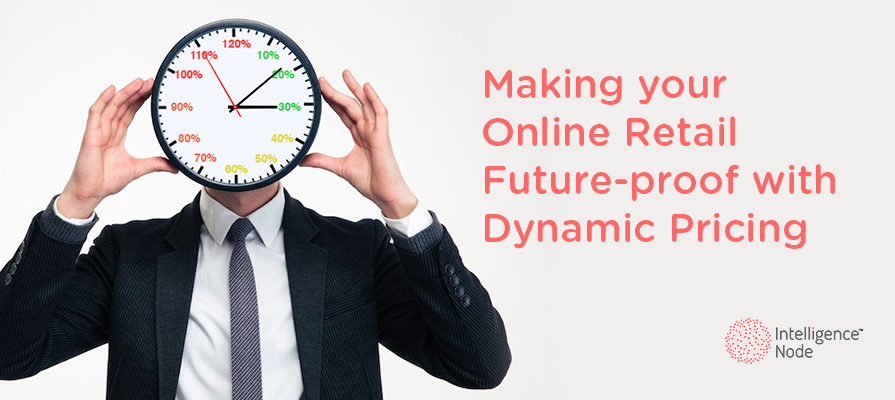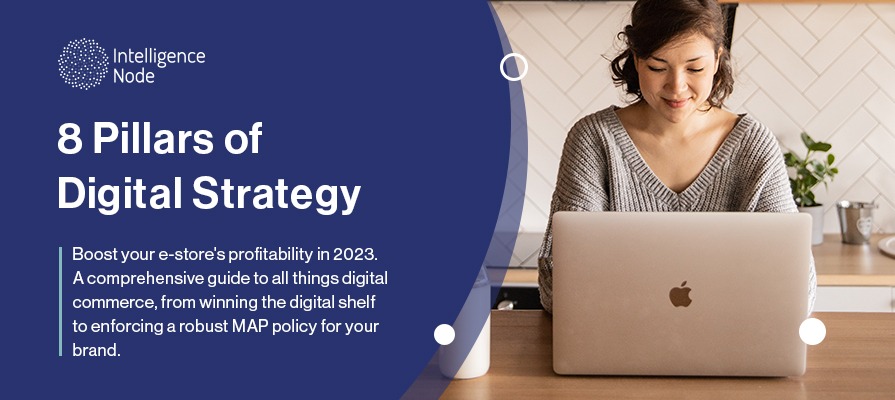“Retail slowdown” is a plague that has affected many big-name companies. But when it comes to the survivors, there’s one overarching theme that connects them: Effectively enabling rapid AI adoption and moving to data-first modes of operation.
When inspecting their formulas for success, it’s not a stretch to predict that a trend in 2020 will be the evolution of AI applications. What were once only used for store infrastructure and CRM/POS use cases will become the most essential nuts and bolts of retail strategy. Intelligent data tools will lie behind competitive benchmarking, assortment planning, price optimization, budget allocation, pricing compliance, and so on.
With that in mind, let’s further dissect some of the biggest retail winners of 2019. Their playbooks can provide us with useful tips for the new year, the new decade, and beyond.
Successful retail businesses need to be data powerhouses
Just a look at the way Walmart is trending.
According to CEO Doug McMillon, the retail giant is dedicating more and more resources towards becoming a “digital enterprise.” Billions of their dollars are going into tech investments: research, development, acquisitions – you name it.
At the heart of this movement is a desire to shed old perceptions and meet their customers online. To strengthen it’s digital channels and practically set up a data infrastructure overnight to challenge pureplay leaders, Walmart embarked on an acquihiring spree last year scooping up the most promising global tech talent to boost it’s data arsenal.
Such data-centric efforts are behind much of Walmart’s rapid market growth this past decade. In 2018, some $12 billion was funneled into IT solutions, and the past few years have seen the retailer put considerably more attention on online sales of apparel and groceries.
These initiatives have even leaked into physical stores. Walmart’s highly innovative Intelligent Retail Labs project, for instance, has equipped small-scale grocery stores with high-tech gadgets aimed at upping the efficiency of day-to-day operations.
Retailers can coexist and win in the Amazon ecosystem… with the right investments
Case in point: Kohl’s.
Despite not being quite on the same level as Walmart or Amazon, they’re succeeding by committing to a modern blueprint. This involves injecting data into everything they do – from mobile to physical locations and especially to inventory predictions.
CEO Kevin Mansel elaborated on this movement in a public statement:
“We improved our merchandise margins through strong inventory management and improved promotional and permanent markdowns. All areas effectively managed their expenses. And, we ended the year with 7% less inventory.”
Mansel also predicted a greater and greater reliance on the cloud for the company’s expanding digital operations.
AI isn’t optional at any point in the business value chain
From the back-end to the customer-facing and everything in between, AI has become a requirement.
And not just for the sake of having it, but to effectively fill problematic holes in the systems and keep your retail business afloat.
Over 55% of surveyed companies have between 10 and 100 people devoted to AI solutions in eCommerce, data & analytics, and/or customer support, and that percentage is quickly growing. After all, as one anonymous executive tells that Ascential survey, “the amount of data that we go through is too complicated. It’s too complex for people to try to analyze without help.”
The key, though, is not just doing something with AI; you need the right data, the right algorithms in place and the right use case defined with precise goals to make it worth your while.
That’s the message that giants like Walmart, Amazon, and Alibaba have heeded to the tune of millions invested into AI solutions. Yes, this tech is essential, but implementing it holistically and correctly is what counts.
Brands can come back from the dead with proper cost reductions and smart assortments
Just ask Best Buy.
After nearly hitting rock bottom, Best Buy’s stock has been skyrocketing, thanks to some carefully orchestrated pricing decisions.
For one, the company started pledging annual goals for savings in the range of $600 million. Unlike empty New Years’ resolutions, these promises were backed by a deep examination and firm understanding of its business expenditures. And, ultimately, where fat can be trimmed with minimal loss of substance.
Plus, Best Buy has established a renewed effort on the front of smart assortments. They’ve successfully identified new and existing sectors with profit potential and subsequently expanded relevant products and programs.
For example, they doubled down on their total tech support program which provides annual assistance from their famed Geek Squad after determining its unbridled popularity. They’ve also delved into expedited shipping and even products in the burgeoning field of healthcare.
More interestingly, Best Buy currently offers a free In-Home Advisors option. It may seem counterintuitive to their margins, but after crunching the numbers, the electronics company found that investing in this program is worth the revenue generated from the customers that use it. Apparently, offering this free service is the good-faith offering many buyers need to confidently pull the trigger on one of Best Buy’s home entertainment systems.
The final word: It’s 2020. “Barriers to entry” can be eliminated with the right AI solution partner
Retailers cannot afford to be myopic about data and AI investments. With the industry challenges that 2020 will inevitably bring, brands need the capacity to continually stave off disruption.
To survive, companies need to surround themselves with the right technologies while staying agile enough to keep up with the pace of innovation. And they need to do so without spending billions on data teams and R&D.
Thankfully, doing so is possible for retailers of all size. Even without the financial flexibility of a Walmart or a Best Buy. As mentioned earlier, you just need the right all-around company infrastructure – data, algorithms, and teams.
And on this journey towards evolving your data infrastructure, IntelligenceNode can be the partner you need. Consider our assortment planning tool, which scans market trends and develops intelligent suggestions to optimize your inventory turns. Or our dynamic pricing solution, which helps you adjust prices to compete with the competition and hit your profit targets.
With these and other analytical resources at your disposal, you can take purposeful action to improve your market position. So that by the time 2021 rolls around, you’re not just scrambling to identify emerging trends; you’re setting them yourself.






